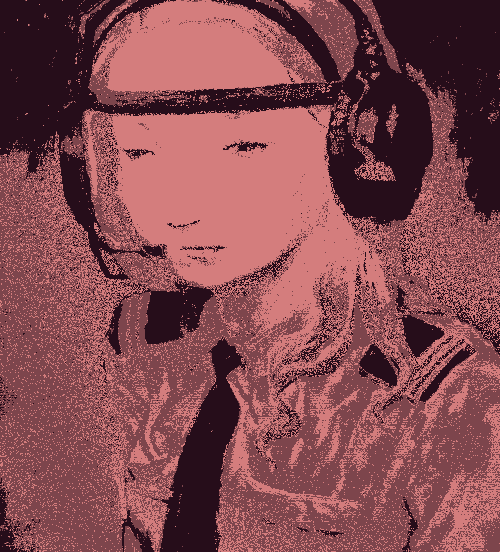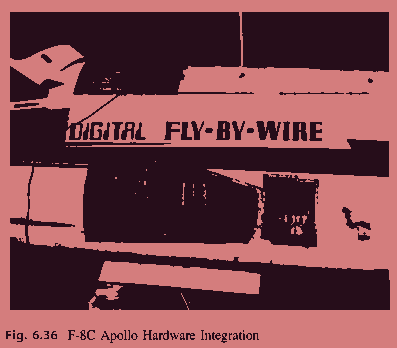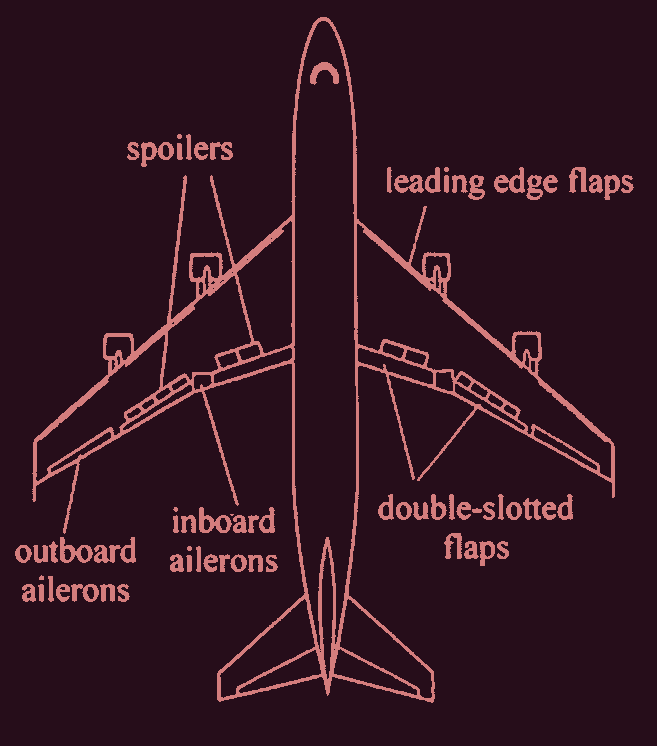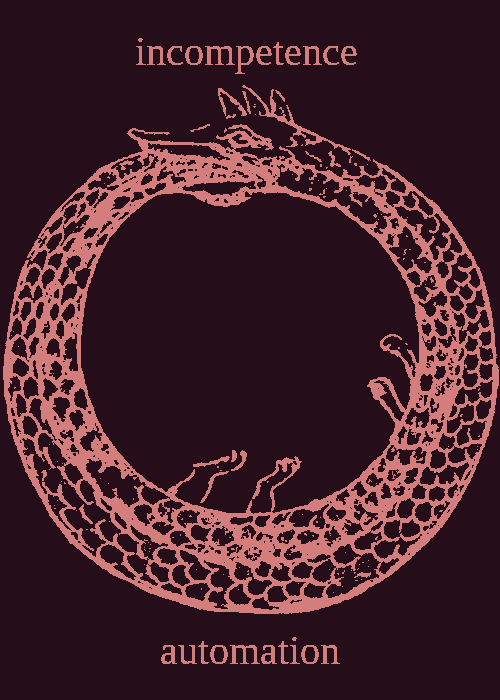deskilling

Sometime in the summer, I found out that William Langewiesche, one of the
best nonfiction writers in America, had died via the Recent deaths
 listed on the front page of
Wikipedia. I spent the next few hours reading his commentaries on airplane
crashes, shuffling from the crowded gate to a middle seat on a JetBlue
plane, my phone set on the lowest brightness as if I were reading smut
instead of an autopsy of EgyptAir Flight
990.
listed on the front page of
Wikipedia. I spent the next few hours reading his commentaries on airplane
crashes, shuffling from the crowded gate to a middle seat on a JetBlue
plane, my phone set on the lowest brightness as if I were reading smut
instead of an autopsy of EgyptAir Flight
990.
Langewiesche was the son of a pilot and had trained to become a pilot
himself before even entering college. In his incipient professional years,
those he called the wilderness
, he was a writer who got nothing
published, and so supported himself by flying planes. His later essays,
often touching on aviation disasters, are some of the finest examples of
modern American nonfiction. They provide a unique specialist's
commentary marked by a controlled build-up of tension, black humor, and a
soft, but persistent and probing pressure on the pathologies of his field.
The through-line of his working life was a focus on the ways in which human
error could propagate through systems intended to be immune to those exact
errors.
When I first came across the word deskill
, I thought it came from the
words desk
and kill
bolted together, a reference to the act of
writing (at a desk) being painful and involving some kind of (metaphorical)
murderous force. I later saw it in Langewiesche's 2014 article about the
crash of Air France Flight 447, The
Human Factor, in which I finally learned its definition, but it was only
when I started writing this post that I caught onto its proper prosody:
de-skill
, as in the disappearance of skill, or of skill's value.


Langewiesche lived through the takeover of fly-by-wire controls in commercial aircrafts in the late eighties. Fly-by-wire promised a new kind of nervous system for airplanes. Before, the interface between an airplane's flight and its pilots' inputs was a mechanical one, governed by the teamwork of simple machines found in any introductory physics course: pulleys, screws, wedges, etc. This in theory dictates a one-to-one correspondence between the action of a pilot and the resulting change in the control surfaces of the aircraft, which include the ailerons, elevator, and rudder. I say correspondence because the relationship goes the other way: external aerodynamic forces acting on the plane have an equal effect on the controls. This enables pilots to receive immediate tactile feedback from their environment, but makes it difficult for them to transmit the necessary force to maintain control over their aircraft. Most critically, the increase in aircraft size, power, and speed also came with an increase in the complexity and weight of the flight control system.
Fly-by-wire sought to solve the unwieldiness of the mechanical flight control system with a streamlined and computerized interface. Any manual input on the pilots' part was now translated into an electronic signal and sent to a central flight control computer, which then calculated and carried out the adjustments required for the aircraft to achieve the desired position. The computer could use real-time data from its own sensors to fine-tune any given manual input, confined in a feedback loop intended to reduce or eliminate the margin of human error. With advancements in autopilots, this feedback loop often did not require any human intervention at all.
From the other direction, pilots became fundamentally disconnected from any forces acting on the control surfaces. What was once a consequence of basic mechanics became a problem at the forefront of control engineering, since it was now up to the control system to generate artificial forces in order to simulate the tactile feedback naturally occurring in mechanical systems. Also, mechanical systems tended to fail piecemeal in terms of components, but fly-by-wire systems were prone to total failure: for as soon as the central flight control computer malfunctioned, all input and output between the pilots and their machine became meaningless.
It is fair to say that fly-by-wire was a net positive for the commercial aviation industry. It enabled safer, stabler, and longer flights—in other words, without fly-by-wire, the aviation industry as we know it today would not exist. But to people like Langewiesche, and Nadine Sarter, an industrial and operations engineer whom Langewiesche cites extensively, such advances have taken on the flavor of a Faustian bargain.
The problem is that beneath the surface simplicity of glass cockpits, and the ease of fly-by-wire control, the designs are in fact bewilderingly baroque—all the more so because most functions lie beyond view. Pilots can get confused to an extent they never would have in more basic airplanes.

If fly-by-wire systems enable the automation of everything that is routine,
which by definition takes up the vast majority of flight experience for
pilots, then the rare but critical instances of unpredictable, faulty
behavior become ever more difficult to prepare for, by the very nature of
their unusualness. In Langewiesche's words: flying becomes … a
mind-numbing wait for the next hotel.
Put another way, pilots can
accumulate hundreds of hours of flight experience over a year, but have done
actual piloting for only a handful of those hours. Because flying an
aircraft demands less and less from pilots, there are presumably pilots
working today who might have not been able to work in an older era with
higher standards. Langewiesche describes it as a spiral in which poor
human performance begets automation, which worsens human performance, which
begets increasing automation
. Does this sound familiar?
Later on, there's a great piece of snark from Langewiesche, in response to a Boeing avionics engineer (I'm not sure it was meant to be snark, but it sure does sound pointed to me):
From the design point of view, we really worry about the tasks we ask them to do just occasionally.
I said,Like fly the airplane?
You could imagine the exchange being about any career whose drudgery has been, or is in the process of being automated away:
like write code?
,like know a foreign language?
,like write college essays?
,like make a pitch deck?
, and,like record the minutes of this morning's meeting?
Flying is only a special case Aviation turns out not to be so exotic after all, since a similar phenomenon has been taking place in household garages. We don't have to go all the way to self-driving cars to recognize that the computers in cars today are more complex, unreadable, and impenetrable to the layman than ever. because the potential risk posed by an unprepared pilot far outweighs any consequences related to the above examples (maybe except for the coding). However, whether the effects of deskilling are acute (fatal plane crash, critical data breach) or distributed across time and population (erosion of employee bargaining power), they are unequivocally negative.
Automation allows students and workers to bypass grunt-work and tedium, but
this shift in the scope and hierarchy of work will necessarily lead to
deskilling. Sometimes it's worth it (e.g., manual data entry is a dying
career, and it will not be missed), but other times the consequences of the
great hollowing-out of expertise, however outdated that notion of expertise
might be, are catastrophic. Even when the stakes are lower, such as in the
case of white-collar knowledge workers
whose gruntwork consists of
things like summarising meetings, such tasks still provide important
training for the intern or entry-level employee, training which has been
completely co-opted by glorified chatbots. In this way, deskilling infects
both experienced workers and novitiates. Experienced workers are
incentivized to let their skills atrophy over time, while novices are
not given even the opportunity to acquire the skills they need to
advance in their careers.
To make matters messier, the responsibility of resisting deskilling falls not onto the companies that provide such automation, but onto the people that use the tools. However, with zero financial incentive (in fact, all incentives point towards taking the easy way out, since automation is only improving), it is hard to see a widespread and standardized campaign with the aim to preserve or pass down the skills that once defined competency in a field.
It is fine, even good, if a field changes dramatically. After all, computer
programmers have long since abandoned the punch cards of the seventies, and
there is no reason to return to such a limited medium. Langewiesche deems
the engineers behind modern avionics systems as some of the greatest
unheralded heroes of our time
, and I can't disagree: in terms of safety,
the numbers speak for themselves. I wouldn't want to fly in a
pre-fly-by-wire world. And I don't want to be guilty of the same utopian
thinking of profit-motive technocrats, cast in reverse. Blindly clutching
onto older standards and protocols for the sake of lionizing the past is
just as pernicious as focusing only on future growth.
But deskilling impacts capabilities that are still required for the
safe operation of our current-day, deeply complex systems, systems that
cannot be contained neatly inside any single specialist's brain. Deskilling
is ultimately a kind of forgetting, and soon enough our refusal to remember
will come back to haunt us. When a global decline becomes impossible for
even those at the peak to ignore, the predominant emotion may not be fear or
grief, but an all-around confusion, a dumb befuddlement: how did we even
get here?
(for instance, daliwali writes here that government
collapse is likely to happen via gradual demoralization rather than a
singular violent coup.) Deskilling sits at the necrotic heart of the competency
crisis. It seems we are burning the rungs of the ladder we are climbing
as soon as we pass them, and you can imagine where that will lead us. Soon
enough, we won't even have to imagine.
Rest in peace William Langewiesche, 12/06/1955—15/06/2025. For more information about the history of fly-by-wire systems as well as in-flight simulators, refer to the aptly-titled In-Flight Simulators and Fly-by-Wire/Light Demonstrators by Peter G. Hamel. For such a niche subject, it is a surprisingly accessible read. For a selected list of Langewiesche's works, refer to the one made by longform.org. For an essay on why Western countries are failing to produce skilled workers, refer to H-1Bs by baazaa, who manages to describe all the moving parts of deskilling in detail without ever once using the word.